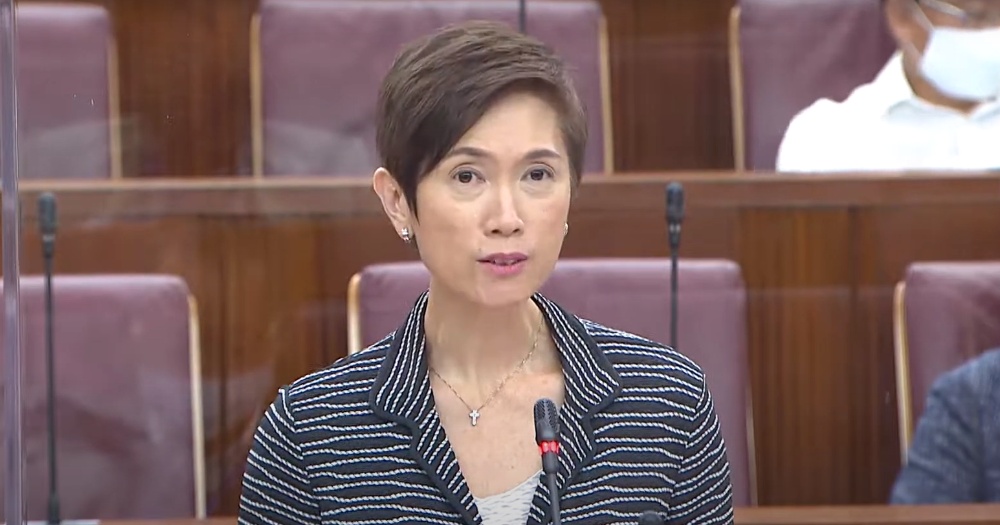The Ministry of Manpower (MOM) cannot publicly name firms that are on the Fair Consideration Framework (FCF) watchlist, because these firms have not flouted any rules, according to Manpower Minister Josephine Teo.
Teo was responding to several Members of Parliament (MPs), who were seeking for firms who are on the FCF watchlist to be publicly named, and taken to task.
She said that naming these firms would frustrate their local hiring efforts, and is ultimately counterproductive.
Naming firms on the FCF watchlist is counterproductive
According to Teo, there are currently about 400 firms placed on the FCF watch list.
These firms are on the list for having a higher share of foreign PMETs, compared to their industry peers, or for having high concentrations of a single foreign nationality source.
Teo explained that Employment Pass applications will be held back for these firms, while the Tripartite Alliance for Fair and Progressive Employment Practices (TAFEP) engages these firms to help them improve their human resource practices.
She also said that some employers are "genuinely unfamiliar" with local recruitment channels, while others are limited by directives imposed by overseas headquarters.
Measures that MOM takes for these firms must therefore be proportional, said Teo, and MOM must also consider the impact on the existing local workforce in these firms.
"In most instances, employers on the FCF watchlist have been responsive to TAFEP's engagement efforts, and expanded their employment of local PMETs, with help from Workforce Singapore," she said.
Teo said that many firms exit the FCF watchlist within a year, and for the minority who are uncooperative, their employment pass privileges remain suspended.
However, when MOM finds evidence of discriminatory hiring practices, the ministry takes the companies to task, and publicises the names of these firms.
Teo said that in January 2020, MOM released the names of four employers who were penalised for pre-selection of foreigners, as well as gender-related discriminatory hiring.
In March 2020, the names of five employers who were penalised for discriminatory hiring were released.
Important for employers to do their part
In response, the Workers' Party (WP)'s Pritam Singh asked Teo to reveal the size of the TAFEP team, and whether she thinks it needs to be enlarged.
Teo said that although she does not have the latest number offhand, she agrees with Pritam that she wants to "strengthen the resources".
However, she also noted that it is important for employers to do their part to have fair hiring practices, and said that MOM should not create an environment where they only engage in enforcement, as it would appear that both sides are always pitted against each other.
"You're always assuming that the employers are not trying to do their part. You're always assuming that the employers have something to hide. And you're always assuming that the employers have no real difficulties that they're facing on their own. And if you interact with enough employers, they will tell you that they have very serious challenges in reaching out to potential job seekers."
Teo said that MOM has to take a balanced approach, and seeks the combination that will be most helpful to the employers, while expanding opportunities for Singaporeans.
Mystery shopper tactic
Tan Wu Meng, who is an MP for Jurong GRC, suggested using the mystery shopper methodology to look for companies with discriminatory hiring practices.
The mystery shopper approach involves sending CVs with otherwise identical qualifications, but varying in age and the ethnicity, to the company. The idea of this A/B testing is to see if there are companies that have a clear pattern of rejecting certain applications at the CV or resume stage," said Tan.
In response, Teo said that the proactive surveillance that MOM is conducting under the FCF watchlist is, in fact, similar to the mystery shopper program suggested by Tan.
Teo said that MOM was made aware of these companies not because of whistleblowers, but due to MOM's analysis of the companies.
This includes a mixture of looking at their workforce profiles and their hiring patterns.
She said that this approach is, in substance, "nearly identical" to Tan's mystery shopper suggestion.
Top image via Gov.sg/YouTube.
If you like what you read, follow us on Facebook, Instagram, Twitter and Telegram to get the latest updates.
